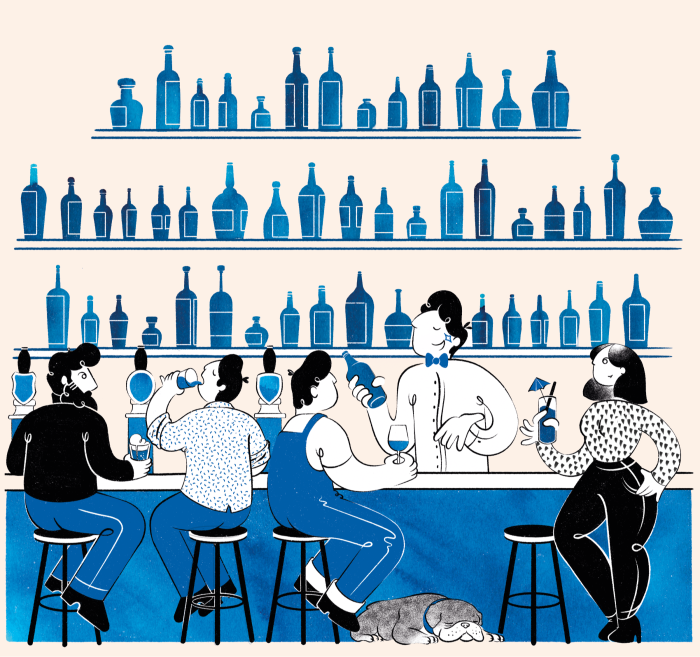Whatever happened to the British boozer?

Roula Khalaf, Editor of the FT, selects her favourite stories in this weekly newsletter.
The first regular job I ever had was working behind the bar at the Black Rose pub on the A1. I had to pull pints and clean the loos and I was paid £3.01 an hour. My boss kept a baseball bat under the bar. And at the end of each shift he’d tot up the dregs in the drip trays under the taps and then dock them from my pay.
The clientele were mainly builders and lonely old men. They all drank lager and Guinness. The air smelt of stale beer, fag smoke, plastic carpets and lemon toilet cleaner. If you couldn’t take the bantz you were considered a bad sport. I was a bad sport. And so eventually I got fired.
The Black Rose is long gone – like thousands of pubs across the UK it was pushed to extinction by a perfect storm of spiralling rents, a rise in at-home drinking, a decline in hard boozing and the smoking ban. (Being crap may also have had something to do with it.)
Pubs have been in decline for some time now – the UK lost 732 pubs a year on average between 2010 and 2018. But last year, for the first time in a decade, the number of pubs in the UK increased – up by 320, according to the Office for National Statistics. And all over the UK, villages and towns are now clubbing together to save their local. The Campaign for Real Ale (CAMRA) estimates that there are now 120 community-owned pubs in the UK – around twice as many as there were in 2016.
What’s changed? The pub is evolving. Food never used to be a priority for pubs – pork scratchings and a fag machine used to suffice. But those days are long gone with the race to attract daytime trade, families, foodies and non-drinkers. Every second boozer calls itself a gastropub and some aim very high indeed: Tom Kerridge’s pub The Hand & Flowers in Marlow has two Michelin stars.
Craft beer and cider have moved centre stage. And the wine is improving too: the recently revamped Gunmakers in Marylebone has a wine list by master sommelier Xavier Rousset, formerly of Le Manoir aux Quat’Saisons. Even teetotallers are being better catered for: the new Virgin Mary pub in Dublin doesn’t serve any booze at all.
And pubs have found a new role as champions of local producers. Ross-on-Wye’s Yew Tree Inn is a lively hub for Herefordshire’s cider makers, hosting festivals and tastings. The Old Bell Inn in Oldham serves more than 1,000 gins. And the Highlander Inn in Craigellachie, Speyside, attracts whisky lovers from all over the world.
Tough times have forced pubs to use their space in new ways, running coffee mornings, jazz gigs and jumble sales. One of my locals has its own radio station. Another runs a night for owners and their dogs.
Some pubs have found success not by offering more, but less. The tiny Southampton Arms in Kentish Town takes pride in not having a phone or taking bookings or cards. There’s no amplified music. No fruit machines. No Aperol spritzes or Sunday lunch. And the service borders on surly. But it’s got 18 craft beers and ciders, an upright piano and a fire – and, as a result, the place is always packed. It’s heartwarming stuff. The Black Rose, however, is one pub I am glad they let go.
Comments